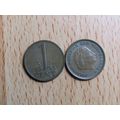Brest, France - Grand Port de Guerre, major war post - multiview postcard c1950s
- Condition : Used
- Dispatch : 2 Days
- Brand : None
- ID# : 125000767
- Quantity : 1 item
- Views : 1246
- Location : United Kingdom

- Seller : justthebook (+1703)
- Barcode : None
- Start : Fri 28 Feb 2014 10:22:40 (BST)
- Close : Run Until Sold
- Remain : Run Until Sold
More Listings from This Seller view all
Seller's Description
- Postcard
- Picture / Image: Brest, Finisterre, France - Grand Port de Guerre
- Publisher: Rema
- Postally used: no
- Stamp: n/a
- Postmark(s): n/a
- Sent to: n/a
- Notes / condition:
Please ask if you need any other information and I will do the best I can to answer.
Image may be low res for illustrative purposes - if you need a higher definition image then please contact me and I may be able to send one.
------------------------------------------------
Postage & Packing:
UK (incl. IOM, CI & BFPO): 99p
Europe: £1.60
Rest of world (inc. USA etc): £2.75
No additional charges for more than one postcard. You can buy as many postcards from me as you like and you will just pay the fee above once. (If buying postcards with other things such as books, please contact or wait for invoice before paying).
Payment Methods:
UK - PayPal, Cheque (from UK bank) or postal order
Outside UK: PayPal ONLY (unless otherwise stated) please. NO non-UK currency checks or money orders (sorry).
NOTE: All postcards are sent in brand new stiffened envelopes which I have bought for the task. These are specially made to protect postcards and you may be able to re-use them. In addition there are other costs to sending so the above charge is not just for the stamp!
I will give a full refund if you are not fully satisfied with the postcard.
----------------------------------------------
Text from the free encyclopedia WIKIPEDIA may appear below to give a little background information (internal links may not work) :
*************
Brest (French pronunciation: ?[b??st]; Breton: [brest]) is a city in the Finistère département in Brittany in northwestern France. Located in a sheltered position not far from the western tip of the Breton peninsula, and the western extremity of metropolitan France, Brest is an important harbour and the second French military port after Toulon. The city is located on the western edge of continental Europe. With 142,722 inhabitants in a 2007 census, Brest is at the centre of Western Brittany's largest metropolitan area (with a population of 300,300 in total), ranking third behind only Nantes and Rennes in the whole of historic Brittany, and the 22nd most populous city in France; moreover, Brest provides services to the one million inhabitants of Western Brittany.[1] Although Brest is by far the largest city in Finistère, the préfecture (regional capital) of the department is the much smaller Quimper.
During the Middle Ages, the history of Brest was the history of its castle. Then Richelieu made it a military harbour. Brest grew around its arsenal, until the second part of the 20th century. Profoundly marked by the Allies bombing raids during World War II, the city centre was completely rebuilt after the war. At the end of the 20th century and the beginning of the 21st century, the deindustrialization of the city was followed by the development of the service sector. Nowadays, Brest is an important university town with 23,000 students.[2] Besides a multidisciplinary university, the University of Western Brittany, Brest and its surrounding area possess several prestigious French elite schools such as École Navale (the French Naval Academy), Télécom Bretagne and the Superior National School of Advanced Techniques of Brittany (ENSTA Bretagne, formerly ENSIETA). Brest is also an important research centre, mainly focused on the sea, with among others the largest Ifremer (French Research Institute for Exploitation of the Sea) centre, le Cedre (Centre of Documentation, Research and Experimentation on Accidental Water Pollution) and the French Polar Institute.
Brest’s history has always been linked to the sea: the Académie de Marine (Naval Academy) was founded in 1752 in this city as well as the aircraft carrier Charles-de-Gaulle was built there. Every four years, Brest hosts the international festival of the sea, boats and sailors: it is a meeting of old riggings from around the world.
Nothing definite is known of Brest before about 1240[dubious ], when a count of Léon ceded it to John I, Duke of Brittany. In 1342, John IV, Duke of Brittany, surrendered Brest to the English, in whose possession it was to remain until 1397. The importance of Brest in medieval times was great enough to give rise to the saying, ""He is not the Duke of Brittany who is not the Lord of Brest"". With the marriage of Francis I of France to Claude, the daughter of Anne of Brittany, the definitive overlordship of Brest – together with the rest of the duchy – passed to the French crown.
The advantages of Brest's situation as a seaport town were first recognized by Cardinal Richelieu, who in 1631 constructed a harbor with wooden wharves. This soon became a base for the French Navy. Jean-Baptiste Colbert, finance minister under Louis XIV, rebuilt the wharves in masonry and otherwise improved the harbour. Fortifications by Vauban (1633–1707) followed in 1680–1688. These fortifications, and with them the naval importance of the town, were to continue to develop throughout the 18th century.
In 1694, an English squadron under Lord Berkeley, was soundly defeated in its attack on Brest.
In 1917, during the First World War, Brest was used as the disembarking port for many of the troops coming from the United States. Thousands of such men came through the port on their way to the front lines.
In the Second World War, the Germans maintained a large U-boat submarine base at Brest. In 1944, after the Allied invasion of Normandy, the city was almost totally destroyed during the Battle for Brest, with only a tiny number of buildings left standing. After the war, the West German government paid several billion Deutschmarks in reparations to the homeless and destitute civilians of Brest in compensation for the destruction of their city. Large parts of today's rebuilt city consist of utilitarian granite and concrete buildings. The French naval base now houses the Brest Naval Training Centre. The town was to serve as a German enclave had the Germans won the war.[3]
In 1972, the French Navy opened its nuclear weapon-submarine (deterrence) base at Île Longue in the Rade de Brest (Brest roadstead). This continues to be an important base for the French nuclear-armed ballistic missile submarines.
type=printed postcards
theme=topographical: rest of the world
sub-theme=europe
county/ country=france
number of items=single
period=1945 - present
postage condition=unposted
Listing Information
| Listing Type | Gallery Listing |
| Listing ID# | 125000767 |
| Start Time | Fri 28 Feb 2014 10:22:40 (BST) |
| Close Time | Run Until Sold |
| Starting Bid | Fixed Price (no bidding) |
| Item Condition | Used |
| Bids | 0 |
| Views | 1246 |
| Dispatch Time | 2 Days |
| Quantity | 1 |
| Location | United Kingdom |
| Auto Extend | No |




 for 1 item(s)
for 1 item(s)

















